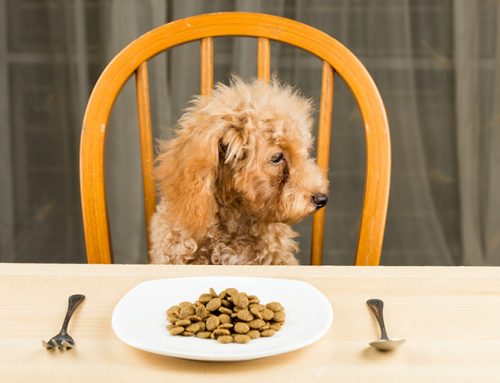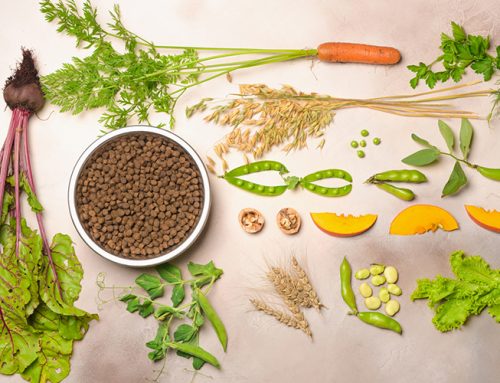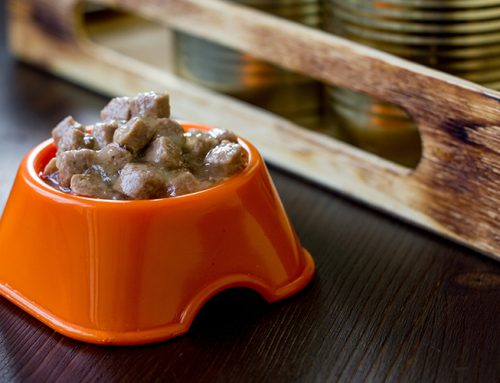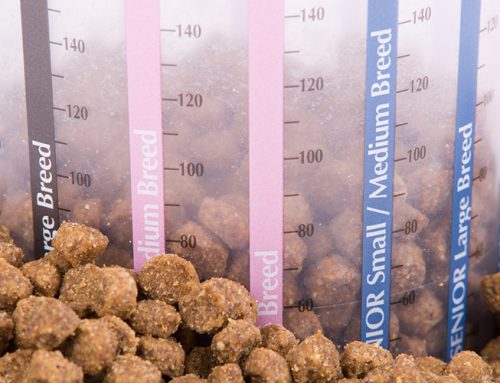Fruit — Is It Safe For Dogs To Eat?
Your furry friend may adore chomping a bite out of your ice cream cone or sharing your watermelon slice, but not all fruit is a healthy choice for dogs, even if they’re perfectly safe for humans.
Dogs are carnivores. Fruit isn’t necessary for a healthy pet. However, many fruits come loaded with nutrients and can supplement a dog’s nutritional intake and give them access to fibre and vitamins.
Dogs aren’t big fruit eaters, nor should they be. Too much sugar can lead to intestinal upset, dental problems like plaque, and yeast growth and infections, so less than five percent of a dog’s overall diet should be fruit. Additionally, fruit should be fed apart from other food, as it can ferment in your dog’s tummy. Gas and bloating aren’t fun.
Oranges, mangos, berries, peaches, pears, pineapple — all of these are perfectly safe for dogs, as long as they’ve been peeled and pitted or de-seeded. Pit consumption is a concern because pits from plums, peaches and other tree fruits can cause intestinal blockages, and some pits contain the poison cyanide. Intestinal blockages can lead to serious health issues and pain.
Anecdotally, if your dog eats pineapple, it will be deterred from eating its own poop or vomit. Your dog will probably reject a lemon or lime. Fresh fruit is best — dried fruit may contain added sugar, oils, and preservatives, which your dog can live without.
As delicious and nutrient rich as fruits are, there are some that are dangerous for dogs to consume. Below is a list of fruits to be wary of.
Fruit you should never feed your dog
Grapes/Raisins
This might be the most toxic fruit of all. Grapes and their dried raisin version can cause your pet to develop sudden kidney failure. The American Society for the Prevention of Cruelty to Animals provides a case study outlining the dangers, and notes “Sensitive dogs have a risk of initial gastrointestinal upset followed by acute renal failure.”
According to a paper published by Frontiers in Veterinary Science, grapes and their dried offshoots (raisins, sultanas and currants) have been reported to cause renal failure in dogs. The report, which is available on the National Center for Biotechnology Information website, notes that poisoning can occur from widely varying quantities of grapes or raisins.
Contact your vet immediately if your dog has ingested grapes or raisins. Even a small amount can be catastrophic. Symptoms of poisoning from grapes include lethargy, weakness, vomiting, diarrhea, panting and excessive thirst.
Fruits to offer with caution
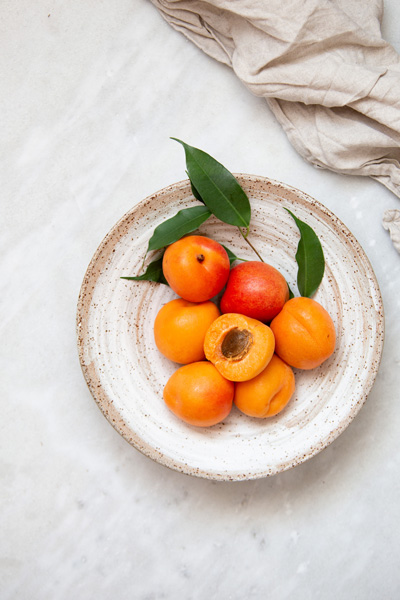
Apricots
Although loaded with potassium and a good source of beta carotene, the pit is considered off limits due to the fact it contains cyanide. The fruit is considered safe. Same goes for peaches and plums. Don’t leave these fruits in reach of dogs.
Avocado
The creamy avocado is a fruit — and controversial for dogs among pet experts. Avocados contain a fungicidal toxin, which can cause death in animals. But this toxin, persin, is primarily found in the leaves, skin and pit. In large amounts, it can cause vomiting and diarrhea. Persin is limited in the part of the fruit people like to spread on their toast. Pet Poison Helpline says dogs and cats are rarely impacted by persin and that dogs are in more danger from choking on an avocado pit. Other experts debunk the idea that avocados are dangerous and reference studies from 2012.
Also, avocados are high in fat, which can cause a rumbly tummy for dogs, just like high fat meat can. Avocado’s high calorie count means even if you want to try feeding it to your dog, you need to watch how much is being consumed, especially in dog breeds prone to weight gain. But avocados also contain vitamins K, C, B5, B6 and E, as well as folate and potassium.
Cherries
Cherry pits are a real danger. Pits, stems and leaves contain cyanide. Dogs can choke on the pits or suffer intestinal blockages, a more serious concern for smaller dogs. Small amounts of the fleshy part of the fruit is safe, so you could consider de-pitting a cherry or two and sharing it with your fluffy friend. Be sure to keep unpitted cherries out of reach. Symptoms of cyanide pointing included laboured breathing, bright red gums, and dilated pupils.
Contact your vet if your dog has inadvertently consumed one of these fruits and showing any symptoms of illness from vomiting and diarrhea to lethargy.
Figs
Figs have some great benefits, like high fibre and potassium. But too much of a good thing can lead to loose stool and doggy diarrhea. Limit quantities of figs to one or two a week, or forgo all together. Some dogs can experience allergic reactions, the most common of which is a rash in its mouth, or on its skin. Other symptoms include itchy eyes. Figs contain enzymes called ficin and ficusin which can upset a dog’s tummy. The plant itself is highly toxic.
Dates
Dates, which are similar in appearance to grapes or raisins, are safe for dogs to eat, but high in sugar and should be kept to limited quantities as a very special treat. Otherwise, your dog may suffer from diarrhea. Remove the pit before feeding.
Melons
Melons are generally considered safe for dogs — but stick to the meaty fruit part. Don’t let your dog eat the seeds or lick the outside of melons like cantaloupe and honeydew because the exteriors could have bacteria on them. Melons are high in vitamins, but also high in sugar so stick to small quantities. Frozen pieces make a great treat on hot days. Diabetic dogs should avoid melons.
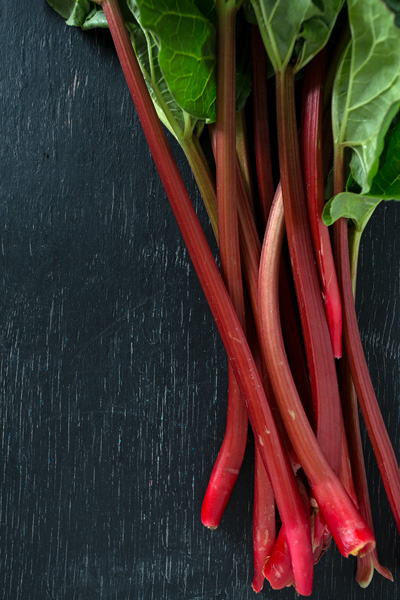
Rhubarb
The biggest risk regarding rhubarb is its leaves, not the stalks that are canned or turned into pies and compotes by home gardeners. If it’s growing in your yard, consider fencing the area off from your dog. Rhubarb leaves are toxic and can cause kidney failure. Symptoms of rhubarb poisoning are unusual drooling, drop in appetite, weakness, lethargy, tremors and changes in thirst or urination. Contact your vet if you think your dog has eaten rhubarb leaves. It’s best not to feed your dog rhubarb pie either — pie contains lots of sugar.
Tomatoes
Tomatoes are another fruit that stirs controversy among pet experts. The green plant (leaves, stems) contains solanine, which is toxic when eaten in large amounts. Ripened tomatoes may be fine for consumption, but some pet advocates say to stay away from them all together or limit intake. Others recommend cooking tomatoes. Solanine is also found in potatoes and eggplants. Symptoms of poisoning from the green parts of the plant include drooling, vomiting, diarrhea, lethargy, weakness, tremors and bloody urine. Tomato plants should be kept out of reach from your dog if you grow them in pots or in your backyard.


